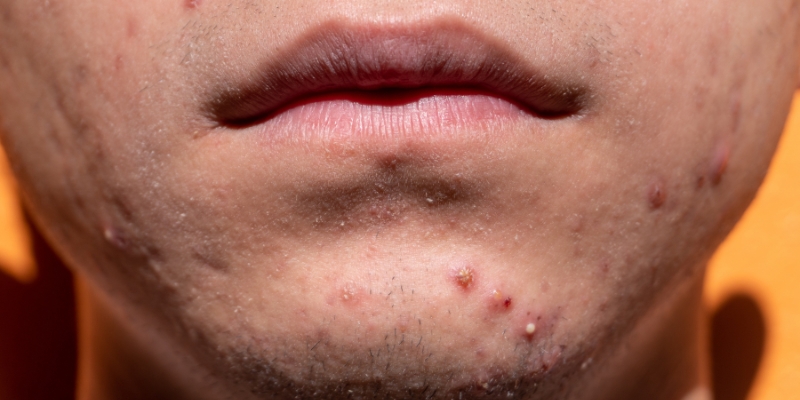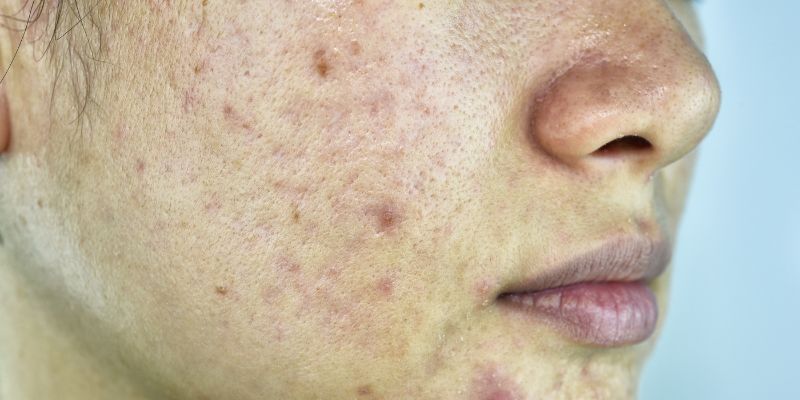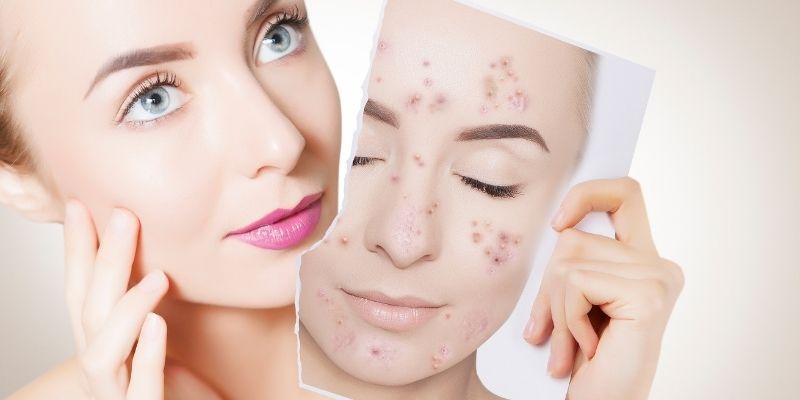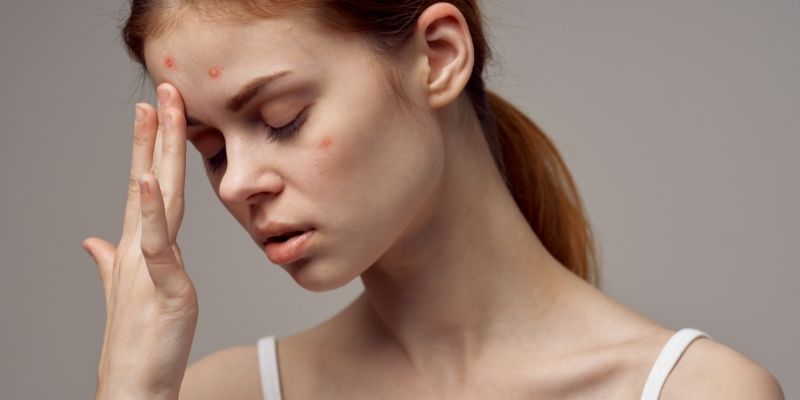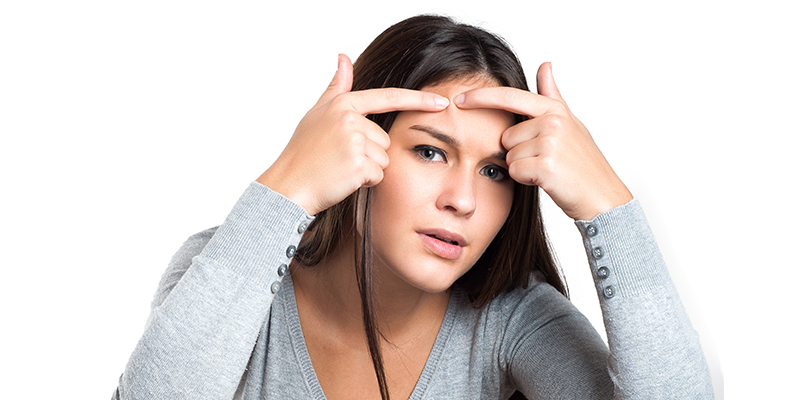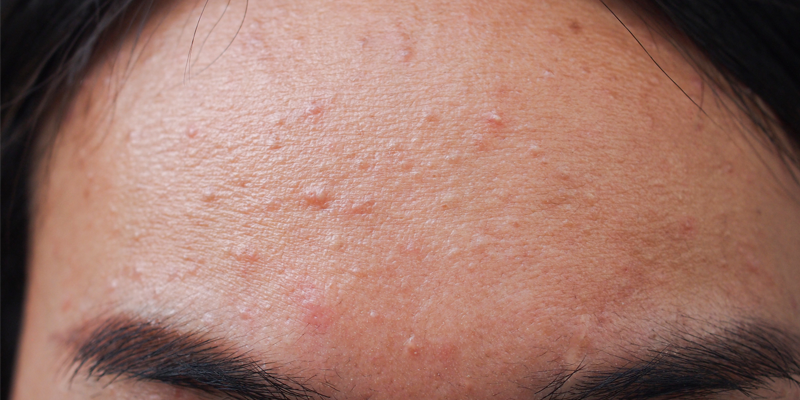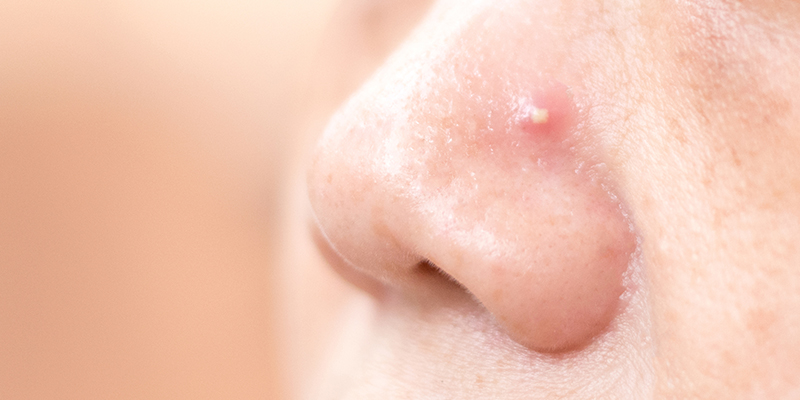How To Treat Acne Around the Mouth?
Experiencing acne around the mouth is painful and most of us want to get rid of it at the earliest as it affects our appearance adversely. While there is no singular cause for this, certain skincare products may induce acne. Those having recurring acne around the mouth, chin and lips may need a hormonal treatment to reduce it, but before that, an accurate diagnosis of the cause by a qualified dermatologist is a must. Let us find out the potential reasons you may be having pimples around the mouth and effective treatments for it.
What Causes Acne Around the Mouth?
Many factors cause acne around the chin and mouth, including:
- Hormonal Changes: Hormonal fluctuations during puberty, menstruation, pregnancy and menopause may lead to the hyperactivity of the skin’s sebaceous glands, further leading to more oil production. Certain conditions like PCOS also lead to hormonal acne in the T-zone area, including the mouth, jawline and chin. Excessive oil clogs the pores in these areas, causing inflammatory acne.
- Comedogenic Skincare Products: Skincare and makeup products that contain irritants and harmful chemicals may clog the pores and cause acne around the mouth. Frequently using greasy or comedogenic lip balms may result in acne and clogged pores around the mouth.
EXPERT ADVICE
Preventing acne around the mouth requires some specific measures. One critical step is avoiding cosmetics that contain comedogenic ingredients such as coconut oil, cocoa butter, lanolin, isopropyl myristate, isopropyl palmitate, and acetylated lanolin alcohol. Instead, choose lipsticks and other cosmetics that contain non-comedogenic ingredients, such as jojoba oil, shea butter, and beeswax. Remove your makeup by double cleansing with wipes and facewash at the end of the day, and apply a non-comedogenic light moisturiser.
- Friction: Constant friction caused by helmets or accessories with chin straps may build dirt and bacteria in the pores, causing acne. Also, if you don’t change your pillowcase often, it may lead to bacterial transfer to the face, especially the mouth area.
- Shaving: Shaving aggressively around the mouth area can cause acne. Using oil or a razor to remove baby hair may also clog the skin pores.
- Unclean Mobile Phones: If you have the habit of resting your mobile phone on your cheeks while talking, it may transfer the bacteria from the phone’s surface to your face. It’s a potential cause of lip and mouth acne.
Types of Breakouts Around the Mouth
- Comedones: Comedonal acne around the mouth is two types – blackheads and whiteheads. Whiteheads are flesh-coloured, with small and closed bumps. Blackheads are open bumps that appear black due to oxidation. They are common in people with acne and make the skin appear rough.
- Pustules and Papules: Pustules and papules are inflammatory and painful acne, filled with pus and tender to the touch. They often leave scars.
- Cysts and Nodules: Cysts and nodules are inflammatory lesions that are often deeply embedded and painful. They require advanced treatment to minimise the risk of permanent collagen damage.
How to Get Rid of Acne Around the Mouth?
If you have tried home remedies for acne around the mouth and OTC anti-acne gels and failed to get rid of your pimples it is time to seek medical help. Consult a dermatologist to establish the cause and severity of the acne and to customise the treatment. Some treatment options that may work as a standalone procedure or in combination with others include:
- Topical Medication: The dermatologist may prescribe topical creams containing retinoids, salicylic acid or benzoyl peroxide to clear acne around the mouth effectively. In some cases, your dermatologist may prescribe topical antibiotics to reduce the inflammation and bacterial activity. However, you need to strictly follow the prescription to attain the best results and avoid side effects.
- Oral Medication: The dermatologist may prescribe oral antibiotics or hormonal medications to treat severe and inflammatory acne associated with PCOS, menstruation, pregnancy, puberty, menopause and more. It may include specific birth control pills that control excessive oil production and acne.
EXPERT ADVICE
Women with hormonal acne around the mouth may benefit from anti-androgen medications such as spironolactone or birth control pills that contain estrogen and progestin. Add chemical peels with salicylic acid to decrease local acne incidence by visiting a dermatologist.
- Intralesional Injections: The dermatologist may recommend these to reduce inflammation and pain associated with cystic acne.
- Advanced Procedures: To treat moderate to severe acne, the dermatologist may recommend advanced aesthetic procedures like chemical peel treatment. They can combine it with laser toning to minimise post-inflammatory hyperpigmentation.
A dermatologist prescribes medication based on your acne and skin type, and we don’t recommend using home remedies and over-the-counter medication without a consultation with a doctor as their safety and efficacy remains scientifically unproven.
What Kind Of Results Can Be Expected?
As Oliva’s dermatologists customise acne treatments based on the root cause, you can expect your acne to reduce significantly, with lesser recurrence, thus giving your clear, pimple-free skin.
When to Visit a Dermatologist?
When you notice small or large pus-filled inflamed bumps near the mouth, jawline, chin or lips, it’s best to consult a dermatologist. The dermatologist will identify skin disorders that may resemble acne, such as:
- Perioral Dermatitis: Some people often experience a rash around the mouth area, which is mistaken as acne. A red rash, inflammation and itching characterise this skin condition. Possible causes may include allergic reaction to sunscreen, toothpaste with fluoride, steroids, etc.
- Cold Sores: Cold sores also affect the lips and mouth area. They look like small pimples and often contain fluid build-up. However, they occur due to infection by herpes simplex type 1 (HSV-1) virus and may cause itching and irritation.
How to Prevent Acne Around the Mouth?
Below are some preventative tips for acne around the mouth:
- Adopt a proper cleansing routine: Cleanse your face thoroughly with a gentle, medicated cleanser twice a day. Follow up with a light yet hydrating moisturiser.
- Avoid comedogenic products: Read labels, and avoid comedogenic skincare or makeup to avoid pore clogging and acne. Also, avoid greasy lip balms.
- Clean your mouth after meals: Wipe your mouth area properly after every meal to avoid pore clogging due to small food particles. Plus, greasy foods can increase the likelihood of acne.
- Shave properly: Avoid aggressive shaving as it can irritate the skin. Make sure to clean the razor after use and choose a gentle shaving foam that won’t block the
- Limit putting a phone against the skin: Our phones get dirty occasionally. Do not put unclean devices against your skin and instead use the speakerphone.
- Avoid touching your face: Touching your face frequently may transfer germs or bacteria from your hands and cause acne.
Anyone can experience breakouts around the mouth. It is always better to prevent pore clogging than deal with acne and the scars it leaves behind. If you notice bumps filled with pus, you should consult the dermatologist immediately for appropriate treatment. Seeking early treatment reduces risk of scarring as well.
A trusted dermatologist can help you build a customised regimen and reduce acne around the mouth. For a customised acne treatment plan by expert dermatologists. Click Here or Call us on 📞82978 82978.
Frequently Asked Questions
Our certified subject matter experts do extensive research and collate facts from reputed scientific journals and international studies to create informative and engaging articles related to all your dermatology concerns. They strive to help you decipher medical jargon, distinguish fact from fiction and overcome paranoia. Our qualified medical board or expert panel goes a step further to verify these facts based on their rich academic knowledge, vast clinical experience and critical industry insights to ensure you consume only medically accurate content that empowers you to make informed decisions about your hair and skin-care treatments and weight management. Check out our Editorial policy for further details
https://www.ncbi.nlm.nih.gov/pmc/articles/PMC5986265/https://pubmed.ncbi.nlm.nih.gov/138532/
https://pubmed.ncbi.nlm.nih.gov/15556720/
https://www.ncbi.nlm.nih.gov/books/NBK525968/
https://www.ncbi.nlm.nih.gov/books/NBK482197/






